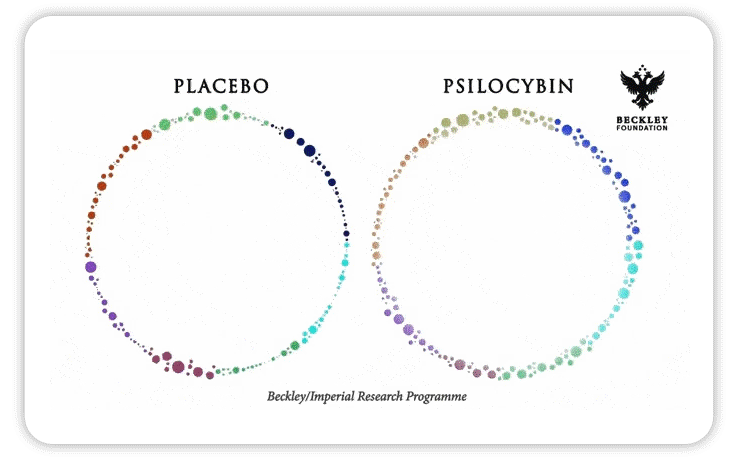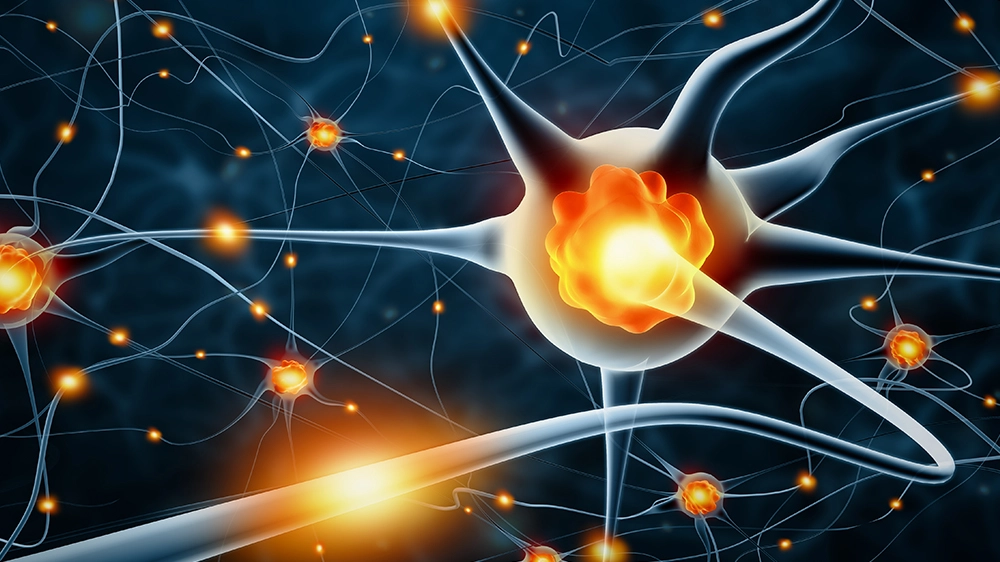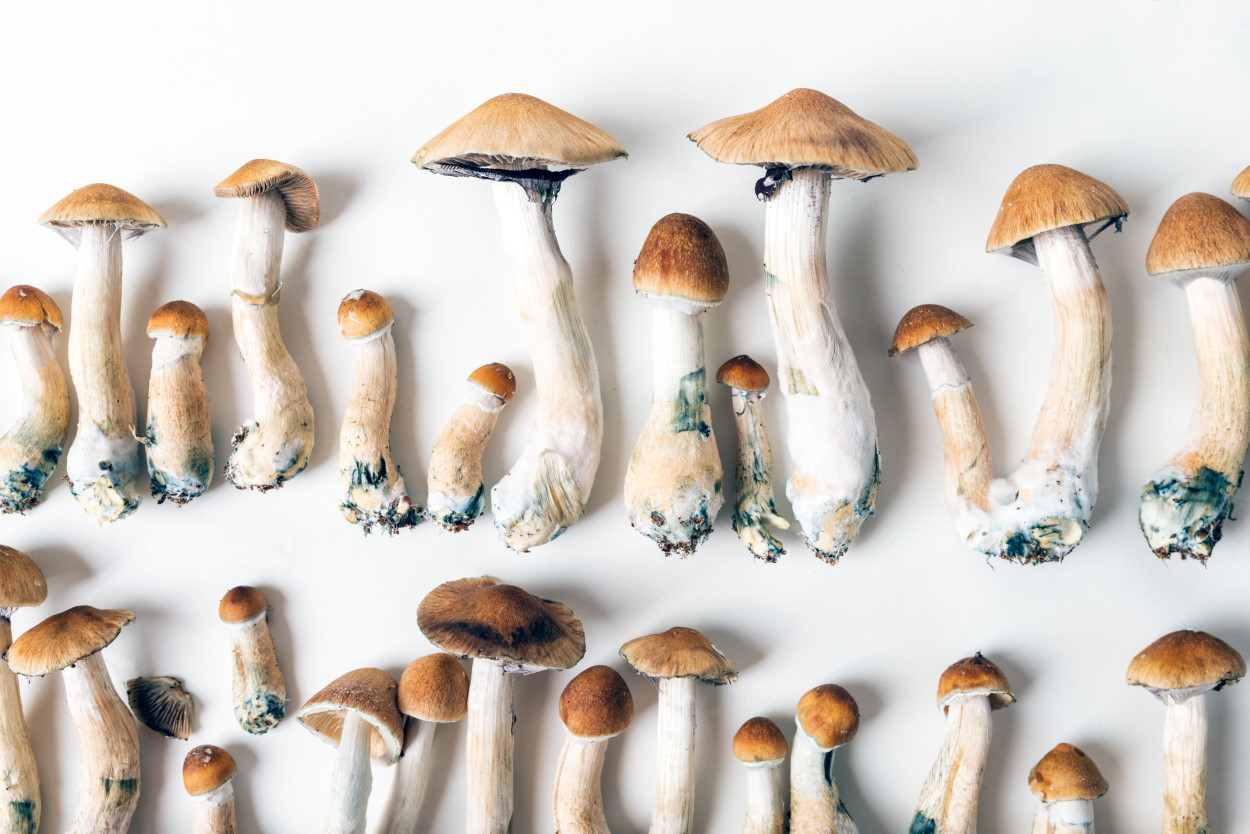Unlocking the Power of Magic Mushrooms: How Psilocybin Affects Your Brain
The effects of psilocybin can be profound, altering perception, cognition, and emotion. It is becoming increasingly apparent that these effects are mediated by its impact on several crucial neurotransmitters. In addition to serotonin, oxytocin, and dopamine, psilocybin also appears to influence the brain’s glutamate system.
Glutamate is the most abundant neurotransmitter in the human nervous system, playing a critical role in nearly every aspect of brain function, including learning, memory, and neural plasticity. Researchers have found that psilocybin alters glutamate signaling, particularly in the prefrontal cortex, an area crucial for complex behaviors, decision making, and personality expression. This alteration is believed to contribute to the perceptual changes and cognitive flexibility associated with a psilocybin experience.
Psilocybin 101: What Happens in Your Brain
When ingested, psilocybin converts to psilocin, which readily binds to receptors in the brain. One of the key receptors affected by psilocin is the serotonin 5-HT2A receptor, which is believed to be critical to the overall psychedelic experience. Psilocin may also activate other neurons in the brain, including GABA-ergic, excitatory, and inhibitory neurons.
Psilocybin and Neurogenesis: A Key to Mental Health?
Psilocybin’s potential in treating mental health disorders may, in part, stem from its influence on neurogenesis – the creation of new neurons in the brain. A growing body of evidence suggests that neurogenesis plays a critical role in mitigating stress responses and depression. Moreover, recent research indicates that psilocybin may promote neurogenesis, particularly in the hippocampus, an area deeply involved in emotion and memory.
In animal studies, researchers found that administering psilocybin led to an increase in the proliferation of new neurons, significantly improving the subjects’ ability to learn and adapt to new environments. If psilocybin can enhance neurogenesis in humans, it could provide a novel therapeutic pathway for treating conditions such as depression, anxiety, PTSD, and even neurodegenerative disorders like Alzheimer’s.

The Science Behind Magic Mushrooms: Enhancing Brain Function
Some neurologists speculate that psilocin and LSD may enhance pyramidal neuron activity, leading to more efficient neurotransmission, increased creativity, and plasticity in the brain. Studies have also shown that psilocin may increase cerebral blood flow and overall brain connectivity, and may even have comparable efficacy to pharmaceuticals in alleviating depression symptoms.
Unraveling the Mysteries: Psilocybin and Brain Network Dynamics
In studying the effects of psilocybin on brain activity, scientists have utilized functional magnetic resonance imaging (fMRI) to visualize changes in blood flow and oxygenation, proxies for neural activity. What they’ve discovered has been nothing short of astonishing.
Psilocybin appears to significantly alter brain network dynamics, reducing the integrity of traditional brain networks while simultaneously enhancing the connectivity between normally disparate regions. This “network disintegration and integration” seems to correlate with the intensity of the psychedelic experience and may underlie the profound changes in consciousness often reported.

Understanding the Effects of Magic Mushrooms on Your Brain
Scientists are currently studying the “whole-brain connectome” to better understand how psilocin changes brain structure. Psilocin has been found to temporarily mimic serotonin, leading to feelings of acceptance, bliss, and love. However, long-term use of psilocybin may sensitize serotonin receptors, reducing the need for serotonin in the brain.
What’s more, this disruption of normal brain networks has been linked to what researchers call “ego dissolution” – a sense of losing the boundary between self and other, frequently described as merging with the environment or universe. This experience, while difficult to quantify scientifically, has been associated with long-term improvements in well-being and life satisfaction.
The Future of Psilocybin Research
As we delve deeper into the mysteries of psilocybin, we are not only gaining insights into how this powerful compound affects the brain but also how the brain itself functions. The intricate dance of neurotransmitters, the capacity for neurogenesis, the complex network dynamics – all these elements interweave to create our subjective experience of reality.
Unlocking the potential of psilocybin could revolutionize our approach to mental health, offering new treatment modalities for a range of conditions. Moreover, it might provide us with invaluable tools for exploring the very nature of consciousness itself. As research continues, we must remember to approach these powerful substances with respect, caution, and an unyielding commitment to understanding their risks as well as their benefits.
Magic Mushrooms: Unlocking Nature’s Secrets
Some researchers believe that magic mushrooms effects on brain bring us back to our true nature, reconnecting us with the natural world. Recent studies have shown that psilocybin can shift brain states and alter glutamate levels, leading to positive spiritual experiences and feelings of unity. Understanding the mechanisms behind psilocybin’s effects may pave the way for new interventions in neuropsychiatric disorders.
In conclusion, while there is still much to learn about how magic mushrooms affect the brain, recent research suggests that psilocybin has a profound impact on brain function, including enhancing neurotransmission, increasing brain connectivity, and potentially alleviating symptoms of depression. As our understanding of psilocybin and its effects continues to grow, we may unlock new insights into the human brain and its potential for healing and transformation.
Ethical Considerations and the Path Forward
As the scientific community continues to reveal the potential benefits of psilocybin, it becomes essential to address the ethical implications and develop clear, informed policies to guide its use. Psilocybin is still classified as a Schedule I drug under international conventions, indicating a high potential for abuse and no accepted medical use. However, the emerging research clearly challenges this stance.
Ethical guidelines must be put in place to ensure its safe and responsible use, with a focus on rigorous clinical trials and appropriate therapeutic settings. Similarly, caution should be exercised to avoid over-hyping its potential benefits, as this could lead to misuse and potential harm. By navigating these complexities carefully, society can harness the benefits of psilocybin while minimizing the risks, leading us towards a future where mental health treatment is more effective, more personalized, and more compassionate.
More info about how magic mushrooms effects on brain: https://www.cnn.com/2022/06/11/health/psilocybin-brain-changes-life-itself-wellness-scn/index.html
Our Magic Mushroom options: https://hallucinogenics.store/product-category/magic-mushrooms/



